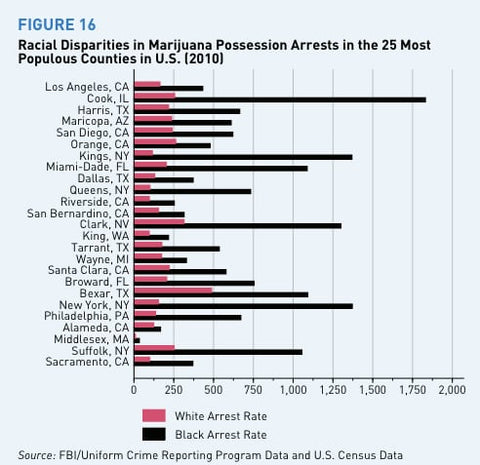Lorem ipsum dolor sit amet, consectetuer adipiscing elit, sed diam nonummy nibh euismod tincidunt ut laoreet dolore magna aliquam erat volutpat.
40,000 Americans are currently incarcerated for marijuana trafficking convictions, at an average yearly cost of $33,000 per prisoner. In 2018, legal marijuana profits in the United States were $10.4 billion. In states where marijuana is now legal, men and women wait in prison for justice reform. This hypocrisy cannot be ignored and needs to be rectified.

The war on marijuana has always been waged disproportionately on people of color. Marijuana was made popular by black jazz musicians and Mexican immigrants, and then adopted by white America during the period of alcohol Prohibition. After marijuana was federally criminalized in 1937, blacks have been been targeted vehemently for over 80 years. Following the formation of the Controlled Substance Act of 1970, marijuana became a schedule I drug and prison time sentences skyrocketed. The justice system of some states seem to be waging racial a jihad on marijuana.

The ACLU published a study in 2020 that takes an in-depth looks at the war on marijuana: its racial prejudices, the monetary cost to the country, and the toll it has taken on the liberty of millions of Americans who have been affected, arrested, or incarcerated.

In California, 2013, Corvain Cooper, a father of two and clothing store owner, was sentenced to life in federal prison for his part in marijuana distribution, under what is now a misdemeanor, but then a felony, and his third strike. His case for clemency was denied by the Supreme Court. He is now a board member of Last Prisoner Project and has a petition with 140,000 signatures for presidential release.
Last Prisoner Project, (LPP) a nonprofit coalition of cannabis industry leaders, executives and artists dedicated to bringing restorative justice to the cannabis industry. LPP offers financial aid to families of prisoners with marijuana convictions and legal representation for prisoners, has a scholarship program with Oaksterdam University to allow released prisoners to study at America's first cannabis college, and yearly offers $50,000 in grants to Green Flower education.








